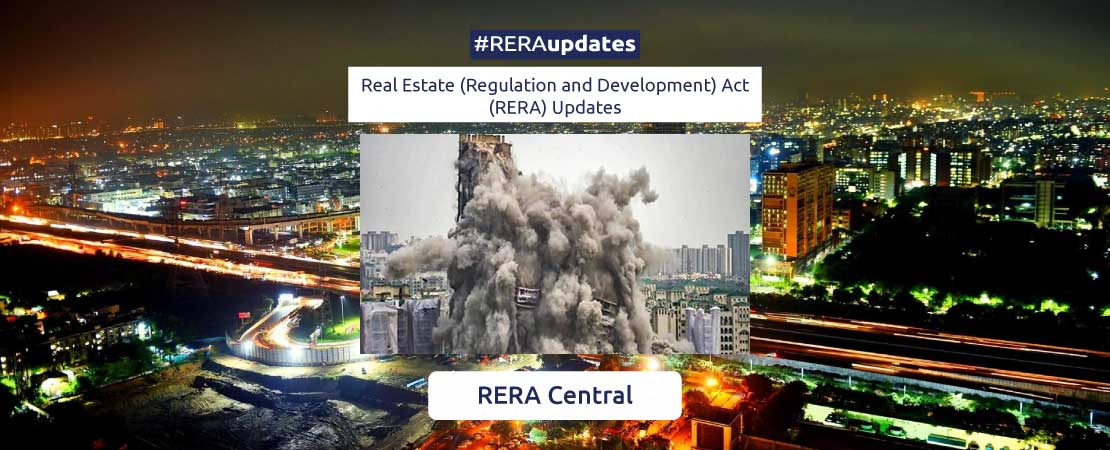If media reports are to be believed, after the Real Estate Regulation Act (RERA) came into being, all the government officials have become careful in sanctioning building plans, builders are now fearful of the law and the judiciary is trusted as more proactive than reactive.
A fellow panelist at a TV debate emphasised that Supertech twin towers violations are pre-Rera realities. The market has changed a lot in the post-Rera world. Really? I wonder where. Are we talking about some other part of the world?
To be sure, Supertech demolition is not the first such landmark judgment that has been shaping the industry narrative. In 2014, the Competition Commission of India had slapped a Rs 630 crore fine on DLF. However, it is not about one or two defaulters but the ecosystem that supports perpetrators and definitely not the victim – the homebuyers. The C-SAT score of Indian real estate (as per Track2Realty survey) slipped from 20 (out of 100) in 2011, to 18.
All the reforms like RERA, GST, Benami Transactions and demonetisation, etc are reforms only on paper. Nothing has changed on the ground for the hapless homebuyers.
Policy interventions have only made the builders smarter in dodging the bullet. For example, one of the builders in Greater Noida West is forcing buyers to sign an advance consent that the builder is free to make any future changes in the FAR and layout. Any resistance by the homebuyers is silenced with the builder’s wrath and the two-third (needed to vet it) succumb before the mighty builder. One aggrieved homebuyer who approached the consumer commission against the unfair contract is running from pillar to post for speedy justice.
Another builder I know threatens the buyers that if they dare approach Rera against any delay or default, he will make life miserable by delaying the possession of dream homes for years with multiple counter litigations. Salaried homebuyers burdened with both rent and the EMIs can’t challenge the builder in lengthy and costly litigation. This has been a question that even the Supreme Court pointed out in its judgment against Supertech Twin Towers.
I met a harassed homebuyer who wanted to sell his under-construction apartment due to a health emergency at home. The builder refused transfer and said that he could buy back only at the same rate at which he had sold the unit four years back. So all the appreciation benefits go to the builder but the interest burden is the liability of the buyer. The exploitation doesn’t end here. Once the apartment was bought back, the buyer with a critical health emergency at home was asked to wait for the refund till the builder sells off the same unit to someone else. You are trapped in the builder’s net!
You buy a toothpaste for Rs 50 and can criticise the brand on social media if you did not like it. But you can’t criticise the builder who sold the house worth at least Rs 50 lakh with your lifetime earnings. If you do, the builder sends a statement “our legal team is looking into your issue; it is a case of defamation”. One builder has it in his Builder Buyer Agreement that anything not liked by the buyers has to be settled through an arbitrator and the buyer ceases to have any right to amplify the issue on social media. Who will be the arbitrator if the project is delayed or falls short of the buyers’ expectations? It will be appointed by the company (builder) only.
So, is the industry narrative that the landmark judgment would help reform the murky world of Indian real estate correct?
I continue to wonder when and where the wave of reforms swept the business of real estate in this part of the world. A homebuyer is trapped in the builder’s net the moment he pays the token amount. Thereon, he has no choice but to succumb to the builder’s wishes.

